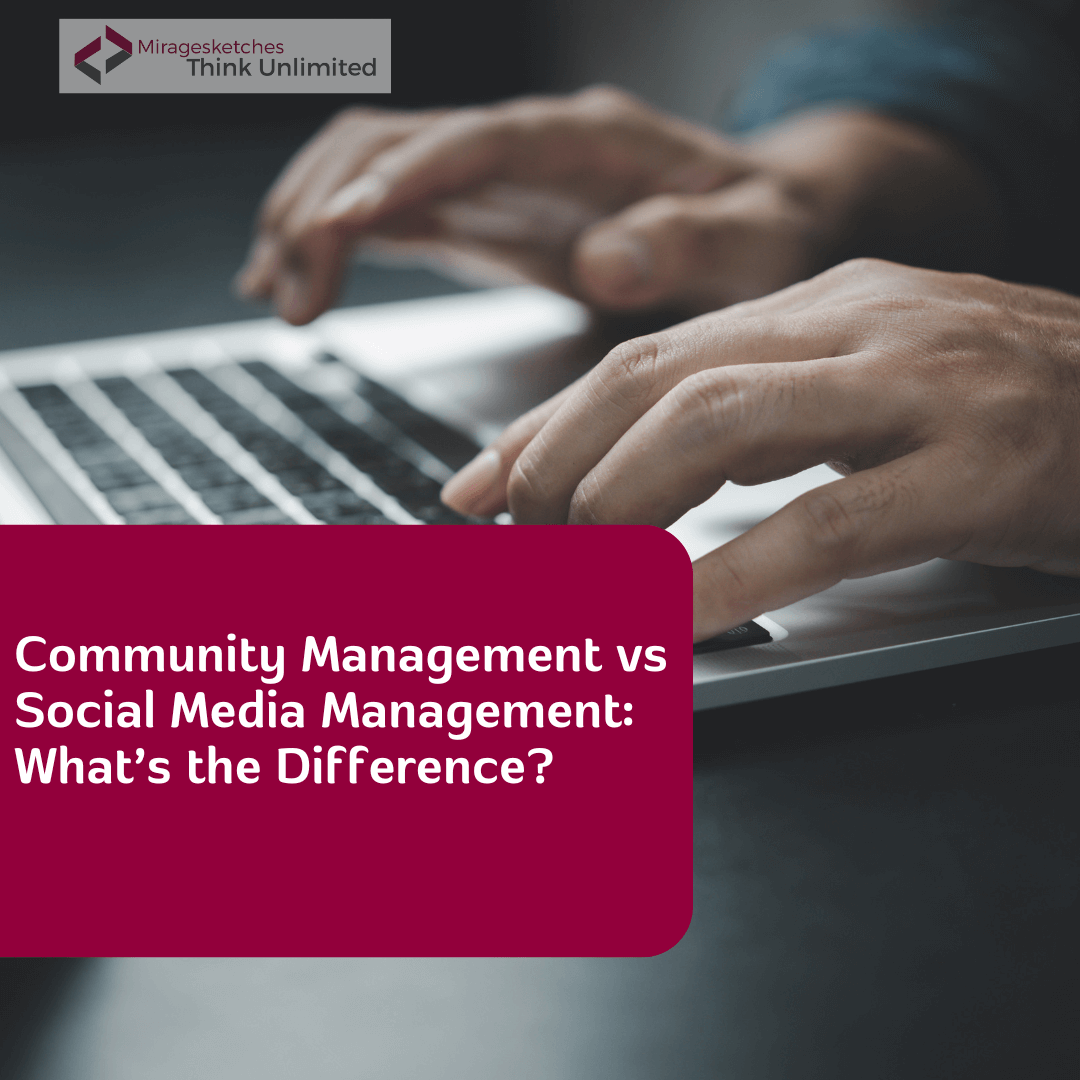You may think community management and social media management are the same thing, but they’re not.
They sound similar, but what they do for your business is pretty different.
You may ask, “How do they differ?” That’s what we’ll look at today.
What Is Community Management?
Community management is when someone helps people in a group feel connected.
It’s all about building strong relationships between a brand and its customers.
This person creates spaces where people who love your brand can talk to each other and share ideas.
Think of it like this.
Imagine you’re the leader of a community for a popular brand.
Your job is to keep the members happy, excited, and engaged with each other.
You answer their questions, plan fun activities, and make them feel like they’re part of something bigger.
A community manager does that for businesses.
They make sure the people who like the brand stay happy.
This helps create loyalty.
What Is Social Media Management?
Social media management is all about posting content and getting as many people as possible to see it.
It’s more focused on growing the brand’s presence online.
The main job of a social media manager is to make posts that will get likes, comments, and shares.
They have to keep up with trends and know what people like.
They use platforms like Instagram, Facebook, Twitter, and TikTok to show off the brand and get more followers.
It’s like if the brand you were running had a website.
You’d make sure to post cool updates, share the latest news about the brand, and get people to follow the official page.
Key Differences Between Community and Social Media Management
Now, you might wonder what makes them so different if they both deal with people.
While both roles focus on engagement, they do it in different ways.
A social media manager talks to everyone, even people who aren’t part of the brand’s loyal following yet.
Their goal is to make as much noise as possible to get new followers.
On the other hand, community management focuses on people who are already part of the brand’s audience.
They work to make the existing community stronger.
To put it simply: social media managers shout out loud to everyone, while community managers have conversations with those who already know the brand.
Roles and Responsibilities of a Community Manager
A community manager’s job includes responding to messages, creating spaces where people can talk, and hosting events or online discussions.
They also gather feedback from the community and share it with the company.
Let’s say you have an online group that talks about gardening.
The community manager would organize events, ask questions like “What are you growing this season?” and keep the group interested by making it fun.
They wouldn’t just post and leave; they’d stay to chat with the members.
They also handle any problems or complaints.
If someone in the group has an issue, the community manager makes sure it gets solved quickly. That helps keep the peace.
Roles and Responsibilities of a Social Media Manager
Social media managers, on the other hand, are busy creating and planning content.
They look at trends and decide what kind of posts would get people’s attention.
Their job is to get as many people as possible to see the brand.
They might run contests, schedule posts, or create a cool new hashtag for people to use.
If you’re scrolling through Instagram and see a funny meme from a brand you follow, a social media manager probably made it.
Their goal is to get people talking and sharing so more people see the brand.
They also look at data to figure out what’s working and what’s not.
If a post doesn’t get many likes, they’ll try something new next time.
They always look for ways to improve the brand’s presence online.
Community Engagement vs. Social Media Engagement
When we talk about engagement, it’s important to know that community engagement is about keeping the current audience involved, while social media engagement is more about growing the audience.
For example, if you run a Facebook group, community engagement means having members participate in discussions, attend live events, and share their experiences.
In contrast, social media engagement means getting a large number of likes, comments, and shares on a post, regardless of who the people engaging are.
Skills Required for Community Management
A community manager needs to be good at listening. They also need to be able to handle conflict in a kind and calm way. It’s important that they make people feel heard and valued.
Skills Required for Social Media Management
A social media manager needs to be creative.
They have to think of fresh ideas for posts that will grab people’s attention.
They should also know how to use data to improve the content strategy.
Knowing trends and being quick to respond is key.
Choosing Between Community Management and Social Media Management
How do you decide which one is right for your business? It depends on what your goals are.
If you want to create strong, lasting relationships with your customers and get feedback from them, community management is the way to go.
But if your goal is to increase brand awareness and reach more people, then social media management is probably better.
Benefits of Community Management for Your Business
Community management helps businesses keep their customers happy.
It makes them feel part of something bigger, which leads to loyalty.
People who are part of a community are more likely to stick with a brand and recommend it to others.
Benefits of Social Media Management for Your Brand
Social media management helps brands get seen by more people.
It’s a fast way to grow followers and get attention online.
When done right, it can bring a lot of traffic to a brand’s website or store.
Final thought
In the end, both community management and social media management are important, but they serve different purposes.
Social media is about spreading the word and gaining followers, while community management is about keeping the followers you already have happy and engaged.
Both have their place, and the best brands use both to succeed.





